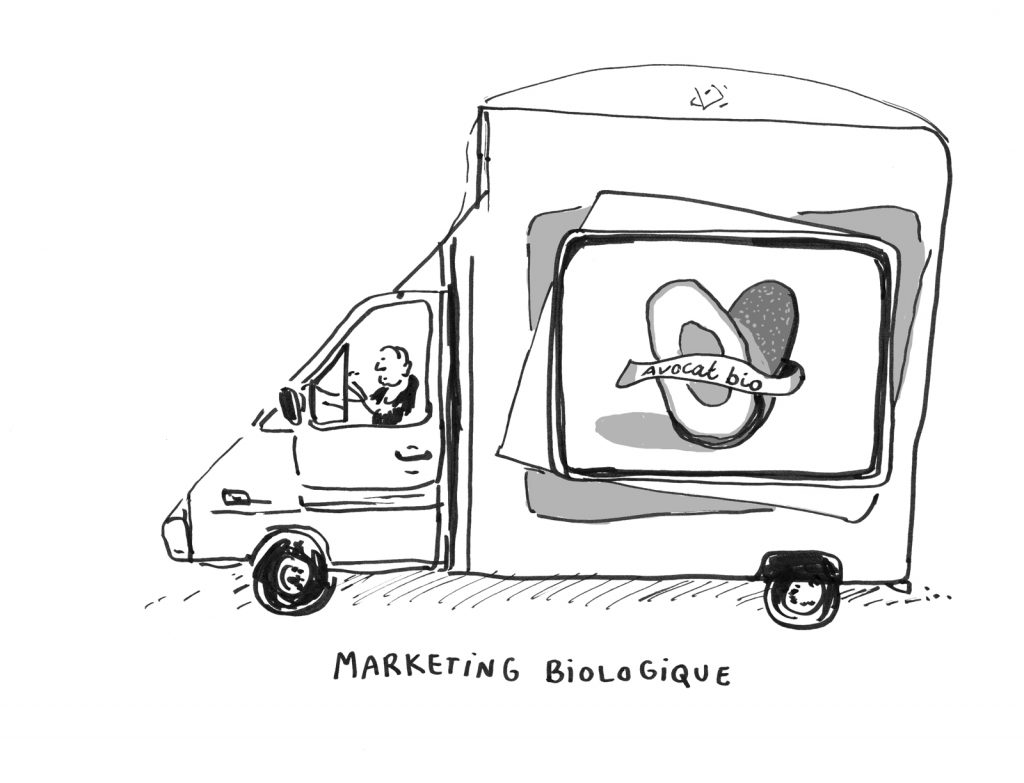Julian Assange
618 weeks of deprivation of liberty for telling the truth
618 weeks of deprivation of liberty for telling the truth

The « Bio », has the quotation: shows, stalls of big surface, magazines, baskets… Supermarkets are fond of it, assuring them a market share that could not, in their endless race for profit, slip through their fingers, and the green labeling they need since now « we know » and we have to act as if we were going to change things.
However, if we pay attention to the founding principles of what is called organic agriculture (OA), the antinomy between it and the classic commercial circuits is obvious. Because organic agriculture conceals many other things that are hidden by the simple act of « buying organic » a « product » of which we often ignore the origin, who is the producer and if it was treated in a decent way to grow what we will eat, the miles that the product had to travel to get to our plates, the size of the farm, the way the animal and nature were treated …
Originally, organic agriculture was born from the will to stop the sanitary threat of chemical agriculture and the risk of dissolution of farming communities. It carries with it the respect for the farmer and the land, which are inseparable. After decades of the ravages of industrial agriculture, labeling will be an attempt to preserve these valuable foundations of organic agriculture. But if the labels could be a tool of resistance, they remain in a marketing logic that evacuates the subversive potential of AB (see « The label trap »). The situation of the intensive export zones exploiting these new serfs, slave laborers producing the organic fruits and vegetables that flourish on our shelves, illustrates this well (see « From certification to export, organic farming undermines social rights » and « Agricultural labor: towards a new triangular trade?)
What does it matter, some will say, what the consumer wants is to eat healthy. But can we talk about healthy food if women and men are exploited to produce it? If the land is soiled and overused? If the production comes from a land colonized by a country (Western Sahara) or if organic farming perpetuates the domination of the rural world and the dispossession of the fruits of its labor for a northern market? The financiers and distributors that are the large surfaces do not care about all that, seeing in the « bio » only a source of additional profits. According to the principle that the capitalist system recovers everything, even what is opposed to it, to ensure its maintenance, organic farming risks to see its deep nature disappear and to be only a competitive industrial product (see « La bio piratée »). With all that this implies: competition on the labor market and alienation of the « producer », destruction of ecosystems, mass production, rupture of the links between producer-consumer / Man-nature normally consubstantial to organic agriculture. BASF, Bayer and Monsanto, agribusiness behemoths more concerned with their profits than with the health of men and women, have anticipated the probable windfall: they are therefore launching « organic pesticides »… we are used to oxymorons.
But while AB is at risk of being totally recuperated, emptying its foundations of all their ethical and ecological dimension, reducing it to a simple individualistic logic of healthy consumption, alternative agri-food networks are emerging which, even if they are not free of doubts and defects, can become the leaven of a real change of paradigm (see « Ethical » consumption, beyond elitist niches »)
The future will tell, but we already know that it will not happen without our participation.
Alexandre Penasse, Coordinator of the file